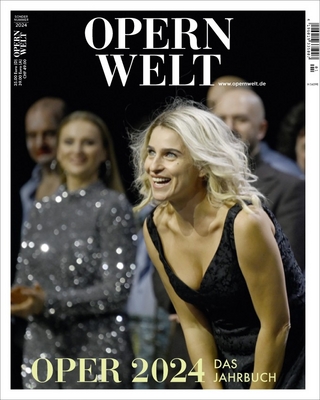
Music and Fantasy in the Age of Berlioz
Seiten
2020
Cambridge University Press (Verlag)
978-1-316-50181-8 (ISBN)
Cambridge University Press (Verlag)
978-1-316-50181-8 (ISBN)
This book explores the evolution of, and interactions between, fantasy and music in Romantic France, providing new contexts for the study of Berlioz and his contemporaries. The volume will appeal to readers beyond the musicological community, drawing together musical, literary, scientific, and visual materials, and applying theoretical and historical approaches.
The centrality of fantasy to French literary culture has long been accepted by critics, but the sonorous dimensions of the mode and its wider implications for musical production have gone largely unexplored. In this book, Francesca Brittan invites us to listen to fantasy, attending both to literary descriptions of sound in otherworldly narratives, and to the wave of 'fantastique' musical works published in France through the middle decades of the nineteenth century, including Berlioz's 1830 Symphonie fantastique, and pieces by Liszt, Adam, Meyerbeer, and others. Following the musico-literary aesthetics of E. T. A. Hoffmann, they allowed waking and dreaming, reality and unreality to converge, yoking fairy sound to insect song, demonic noise to colonial 'babbling', and divine music to the strains of water and wind. Fantastic soundworlds disrupted France's native tradition of marvellous illusion, replacing it with a magical materialism inextricable from republican activism, theological heterodoxy, and the advent of 'radical' romanticism.
The centrality of fantasy to French literary culture has long been accepted by critics, but the sonorous dimensions of the mode and its wider implications for musical production have gone largely unexplored. In this book, Francesca Brittan invites us to listen to fantasy, attending both to literary descriptions of sound in otherworldly narratives, and to the wave of 'fantastique' musical works published in France through the middle decades of the nineteenth century, including Berlioz's 1830 Symphonie fantastique, and pieces by Liszt, Adam, Meyerbeer, and others. Following the musico-literary aesthetics of E. T. A. Hoffmann, they allowed waking and dreaming, reality and unreality to converge, yoking fairy sound to insect song, demonic noise to colonial 'babbling', and divine music to the strains of water and wind. Fantastic soundworlds disrupted France's native tradition of marvellous illusion, replacing it with a magical materialism inextricable from republican activism, theological heterodoxy, and the advent of 'radical' romanticism.
Francesca Brittan is Assistant Professor of Music at Case Western Reserve University, Ohio. Her work focuses on music of the long nineteenth century, and has been published in a range of scholarly journals including 19th-Century Music, the Journal of the American Musicological Society, and the Journal of Popular Music Studies. She was the 2012 winner of the American Musicological Society's Alfred Einstein Award.
Introduction: hearing fantasy; 1. The fantastique moderne; 2. Melancholy, monomania, and the monde fantastique; 3. Le retour à la vie: natural magic and the ideal orchestra; 4. Grammatical imaginaries; 5. Listening in hell; 6. Fairyology, entomology, and the Scherzo fantastique.
| Erscheinungsdatum | 16.01.2020 |
|---|---|
| Reihe/Serie | New Perspectives in Music History and Criticism |
| Zusatzinfo | 40 Printed music items; 1 Tables, black and white; 8 Halftones, black and white |
| Verlagsort | Cambridge |
| Sprache | englisch |
| Maße | 168 x 245 mm |
| Gewicht | 850 g |
| Themenwelt | Kunst / Musik / Theater ► Musik ► Klassik / Oper / Musical |
| Kunst / Musik / Theater ► Musik ► Musiktheorie / Musiklehre | |
| ISBN-10 | 1-316-50181-7 / 1316501817 |
| ISBN-13 | 978-1-316-50181-8 / 9781316501818 |
| Zustand | Neuware |
| Informationen gemäß Produktsicherheitsverordnung (GPSR) | |
| Haben Sie eine Frage zum Produkt? |
Mehr entdecken
aus dem Bereich
aus dem Bereich
Buch | Softcover (2024)
Der Theaterverlag - Friedrich Berlin
CHF 48,95
Mozart und der Abschied von der Aufklärung
Buch | Hardcover (2024)
C.H.Beck (Verlag)
CHF 41,90


